What is PC Gaming: The Ultimate Guide of 2023

- What is PC Gaming?
- Gaming PC vs Regular PC
- Who Plays PC Games?
- Evolution of PC Gaming
- Pros and Cons of PC Gaming
- How to Choose The Perfect Gaming PC
- PC Gaming Setup Essentials
- Where to Buy PC Games
- Top 5 Most Popular Games on PC
- Conclusion
- Frequently Asked Questions
Did you know that the global PC gaming market is estimated to be worth over $37 billion? That’s right, billions.
The popularity of PC gaming continues to soar, captivating millions of players worldwide. From casual gamers to competitive esports enthusiasts, the allure of PC gaming knows no bounds. Whether it’s the unparalleled graphics, customizable setups, or vast game libraries, PC gaming offers an immersive experience like no other.
In this article, you’ll learn everything about PC gaming.
What is PC Gaming?
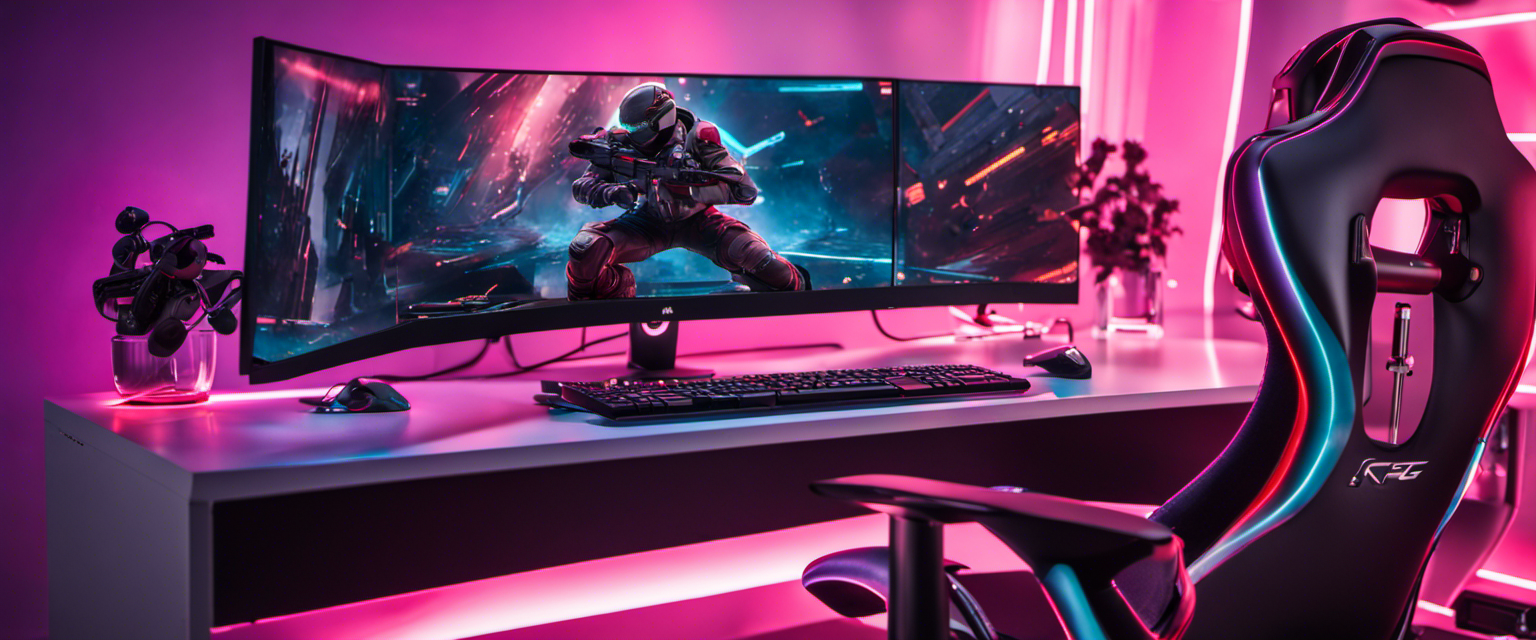
PC gaming refers to playing video games on a personal computer, typically one that has been specifically designed for gaming. Unlike consoles such as PlayStation or Xbox, which are dedicated gaming platforms, a PC offers versatility beyond just gaming. It allows users to modify and upgrade hardware components like graphics cards, processors, and memory to enhance the gaming experience.
PC gaming involves playing video games on a desktop or laptop computer that is equipped with advanced hardware capable of delivering high-quality graphics and performance. These gaming desktop and gaming laptop computers are built with powerful processors, ample memory, and dedicated graphics cards to handle the demands of modern games effectively. They are also compatible with gaming mouse and consoles.
The defining aspect of PC gaming lies in its flexibility and customization options. Gamers can adjust graphic settings, resolution, and frame rates based on their preferences and the capabilities of their hardware. The availability of various input devices such as keyboards, mice, controllers, and even virtual reality headsets contributes to a diverse and immersive gaming experience.
Furthermore, PC gaming offers access to an extensive library of games through digital distribution platforms like Steam, Epic Games Store, and Origin. This vast selection includes indie titles, classic games from previous decades, as well as the latest blockbuster releases. Moreover, modding communities thrive within the realm of PC gaming—allowing players to modify game content or create entirely new experiences using user-generated modifications.
Gaming PC vs Regular PC
Specifically Designed for Gaming Performance
Gaming PCs are purpose-built machines optimized for delivering high gaming performance. They are equipped with powerful processors, high-end graphics cards, and ample RAM to handle the demands of modern games.
Necessary Hardware for Optimal Gaming Experience
Regular PCs may lack the essential hardware components required for an optimal gaming experience. While they can handle everyday tasks efficiently, they often fall short.
Preference for Desktops over Laptops
Many PC gamers prefer gaming desktops over gaming laptops due to their superior performance capabilities. Desktops offer better cooling systems and more upgrade options, allowing gamers to customize their rigs according to their specific gaming needs.
Specialized Peripherals like Gaming Mice
Gaming computers often come with specialized peripherals such as gaming mice that are designed to enhance the gaming experience. These peripherals offer features like customizable buttons, adjustable DPI settings, and ergonomic designs tailored for long hours of gameplay.
The focus is on delivering unparalleled performance specifically tailored for running resource-intensive games smoothly. These machines boast top-of-the-line components such as high-speed processors, dedicated graphics cards, and ample RAM capacity to ensure seamless gameplay without any lag or stuttering.
In contrast, regular PCs are generally designed for everyday computing tasks and may not prioritize the hardware specifications necessary for an optimal gaming experience. While they can handle basic games and routine computing activities well, they often struggle with demanding titles that require substantial processing power and graphical capabilities.
For many PC gamers, the choice between a regular PC and a dedicated gaming computer boils down to the desired level of performance and graphical fidelity. Gaming desktops offer greater flexibility in terms of component upgrades and customization compared to gaming laptops, making them a popular choice among enthusiasts who seek maximum performance from their setups.
Who Plays PC Games?
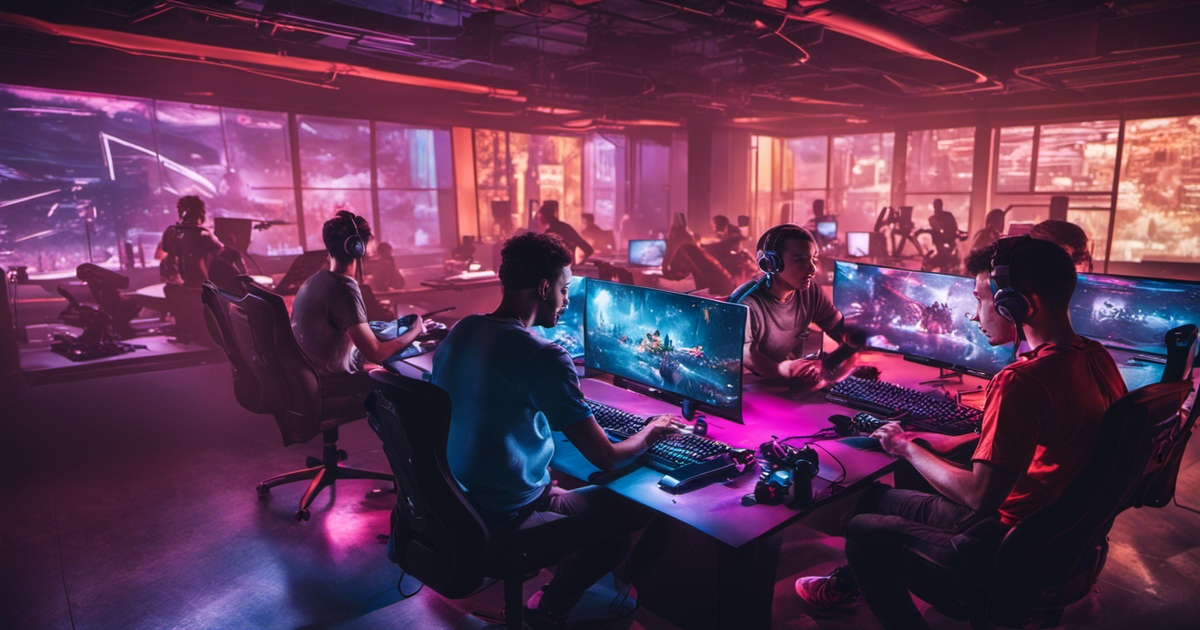
Many PC gamers are drawn to the world of gaming PCs due to the unparalleled gaming experience they offer. Unlike regular PCs, gaming computers are specifically designed to handle the demands of high-performance video games, providing superior graphics and seamless gameplay.
PC gaming has a broad appeal that transcends different demographics. It caters to both casual gamers looking for a quick escape into virtual worlds and hardcore enthusiasts seeking complex gameplay experiences. The flexibility and versatility of PC gaming make it accessible to a wide range of players with varying levels of commitment and interest in video games.
Evolution of PC Gaming
From Basic to Powerful
PC gaming has come a long way from basic gaming computers to the powerful gaming desktops and laptops available today. The evolution of gaming PCs has been marked by significant advancements in hardware, allowing for more immersive and visually stunning gaming experiences.
Surpassing Gaming Consoles
The gaming performance of PCs has surpassed that of gaming consoles, offering a superior gaming experience in terms of graphics, frame rates, and overall customization. This superiority has led to a growing preference for PC gaming among enthusiasts who seek the highest level of visual fidelity and performance in their games.
Specialized Gaming Gear
Many PC gamers now use specialized gaming mice and keyboards designed specifically for enhanced gameplay. These peripherals offer customizable features such as programmable buttons, adjustable DPI settings, and mechanical key switches, catering to the unique needs of PC gamers.
Division Between Gamers
The division between PC gamers and console gamers continues to shape the overall gaming experiences. While console gamers may prioritize convenience and simplicity, PC gamers often value flexibility, modifiability, and the ability to push hardware limits for optimal performance.
Pros and Cons of PC Gaming
So, why PC gaming over say, console gaming? Here’s a brief overview of the pros and cons of PC gaming.
Pros #1: Superior Gaming Performance and Graphics
PC gaming offers unrivaled performance and graphics quality. With powerful processors, high-end graphics cards, and ample RAM, gaming PCs can handle demanding games with ease. The ability to fine-tune graphics settings allows for a personalized visual experience, ensuring stunning visuals tailored to individual preferences.
Pros #2: Extensive Game Library
One of the major advantages of PC gaming is the vast library of games available. From popular AAA titles to indie gems, PC gamers have access to an extensive range of games across various genres. Platforms like Steam and Epic Games Store offer frequent sales and free game giveaways, allowing gamers to expand their libraries without breaking the bank.
Pros #3: Customizable Hardware and Software Options
Gaming PCs provide unparalleled customization options. Gamers can choose from a wide array of components to build a system that meets their specific needs and budget. Moreover, the flexibility extends beyond hardware, as PC gamers can modify in-game settings, install mods for additional content or enhancements, and even customize their gaming experience through software tweaks.
Cons #1: Higher Upfront Cost
While the performance benefits are undeniable, building a capable gaming PC often comes with a higher initial investment compared to purchasing a console. High-quality components such as GPUs, CPUs, and SSDs can contribute to the overall cost. However, it’s essential to consider the long-term value offered by a well-equipped gaming rig.
Cons #2: Potential for Technical Issues
PC gaming may come with technical challenges such as driver compatibility issues, software conflicts, or hardware malfunctions. Addressing these issues might require troubleshooting skills or seeking assistance from online communities or professional support services. Despite these potential hurdles, many enthusiasts find enjoyment in tinkering with their systems to optimize performance.
Cons #3: Frequent Hardware Upgrades May Be Required
As technology advances and new game titles push graphical boundaries, some PC gamers may find themselves needing periodic hardware upgrades to maintain optimal performance levels. While this can incur additional costs over time, it also allows individuals to stay at the forefront of gaming technology and enjoy cutting-edge experiences.
Many PC gamers prefer the flexibility and power of gaming PCs over gaming consoles for a more immersive gaming experience. The ability to tailor every aspect of the gaming setup – from hardware specifications to software configurations – empowers players to create an environment perfectly suited to their preferences.
Gaming laptops offer portability for on-the-go gaming but may come with trade-offs in terms of performance compared to desktops.
How to Choose The Perfect Gaming PC
Great, so you’re sold on the idea of PC gaming. Sounds like it’s right up your alley.
But what now?
You need to get a gaming PC. Here’s what you need to know.
What You Need
When selecting a gaming PC, it’s essential to consider the type of games you’ll be playing. Different games have varying system requirements, and a high-performance gaming computer is crucial for running graphics-intensive games smoothly.
Understanding Your Options
Gaming PCs come in various forms, including desktops and laptops. Desktops generally offer more customization options and better cooling systems, while laptops provide portability. Consider your specific needs before deciding between a gaming desktop or laptop.
Customization and Upgradability
One significant advantage of gaming desktops is the ability to customize and upgrade components over time. This flexibility allows you to adapt your system as new technologies emerge or as your gaming preferences change.
Performance Considerations
When evaluating gaming computers, focus on specifications such as the processor (CPU), graphics card (GPU), RAM, and storage. These components directly impact the performance of your gaming PC. For instance, a powerful GPU is crucial for rendering high-quality graphics in modern games.
Budget-Friendly Options
While high-end gaming PCs can be costly, there are budget-friendly options available that still deliver respectable performance. It’s important to strike a balance between cost and performance based on your specific gaming needs.
Gaming Laptop Division
Gaming laptops have become increasingly popular due to their portability and advancements in technology. However, they may have limitations compared to desktops in terms of upgradability and cooling capabilities.
Researching Reviews and Recommendations
Before making a purchase, it’s beneficial to read reviews from reputable sources and seek recommendations from fellow gamers or tech enthusiasts. Real-world experiences can provide valuable insights into the reliability and performance of different gaming computers.
PC Gaming Setup Essentials
To create the ultimate PC gaming setup, it’s crucial to have the essential components that ensure optimal performance and an immersive gaming experience. Let’s delve into the key elements required for a top-notch PC gaming setup.
1. Central Processing Unit (CPU)
The CPU is the brain of a gaming PC, responsible for executing instructions and handling tasks.A powerful CPU with multiple cores and high clock speeds is vital for seamless gameplay and multitasking capabilities.
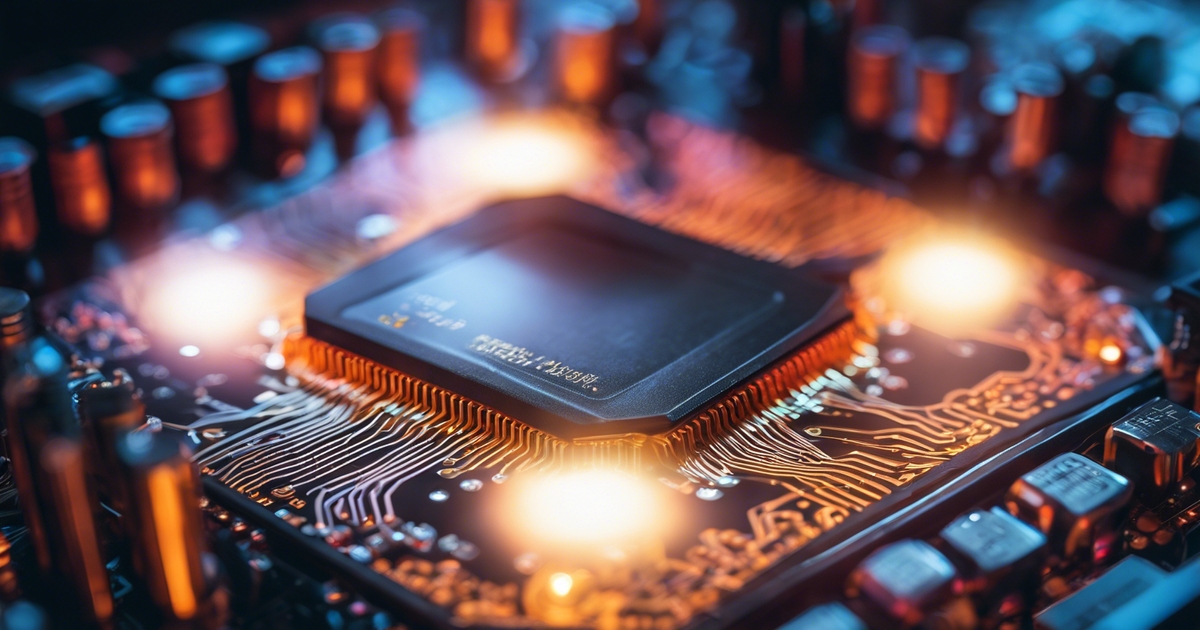
2. Monitor
A high-quality monitor with a fast refresh rate and low response time is essential for immersive gaming visuals. Gamers often opt for monitors with resolutions of 1080p, 1440p, or even 4K to enjoy sharp details and vibrant colors while playing their favorite games.
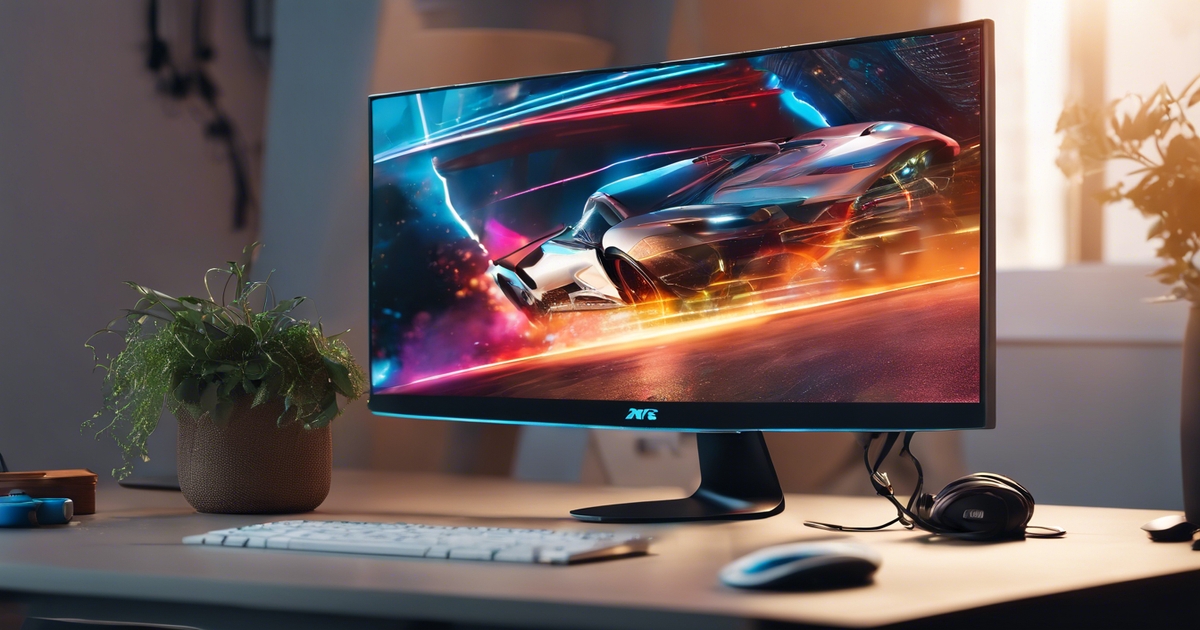
3. Graphics Processing Unit (GPU)
The GPU, also known as the graphics card, plays a pivotal role in rendering stunning visuals and delivering smooth frame rates. Gaming PCs are typically equipped with dedicated GPUs that can handle graphically demanding titles at higher settings without compromising performance.
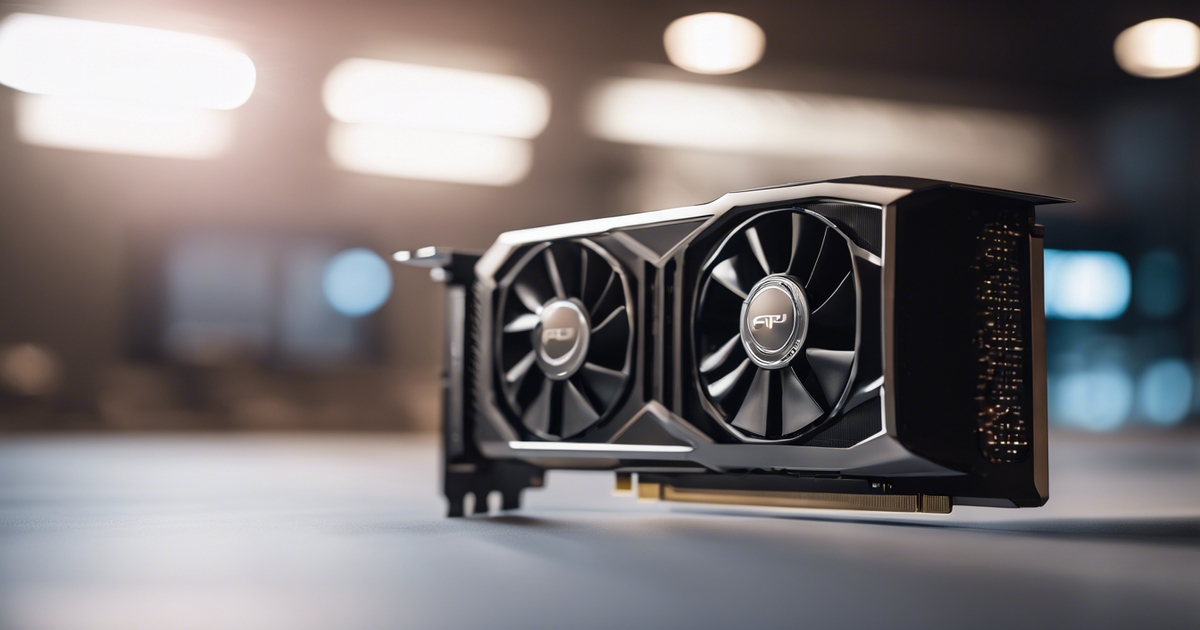
4. Motherboard
The motherboard serves as the foundation of a gaming PC, connecting all essential components such as the CPU, GPU, RAM, storage devices, and more. It’s crucial to choose a motherboard that supports the desired CPU and offers ample connectivity options for expansion.
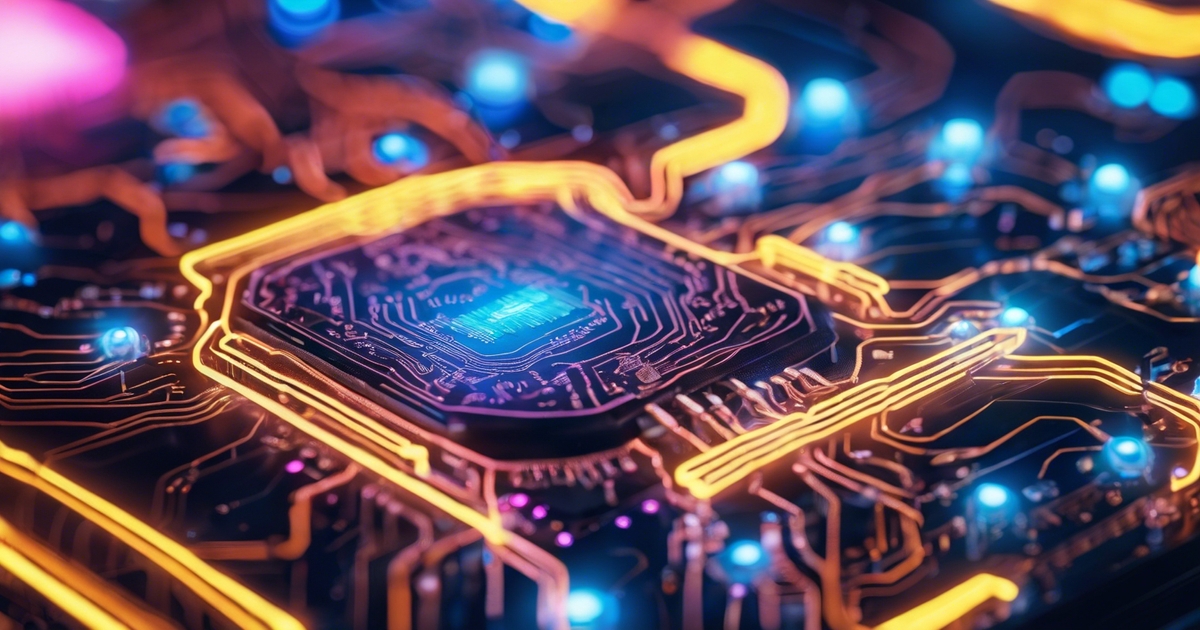
5. Random Access Memory (RAM)
Ample RAM is crucial for running games smoothly and efficiently. Many PC gamers opt for at least 16GB of RAM to ensure seamless multitasking while gaming without any lag or slowdowns.
6. Storage
Fast storage solutions such as solid-state drives (SSDs) are favored by gamers due to their rapid load times and data transfer speeds. Large capacity hard disk drives (HDDs) provide ample space for storing game libraries without compromising speed.
7. Power Supply Unit (PSU)
A reliable PSU with sufficient wattage and efficiency ratings ensures stable power delivery to all components within the system. Overlooking this component can lead to instability and potential hardware damage in the long run.
8. PC Case
Choosing a well-ventilated case not only adds aesthetic appeal but also aids in proper airflow to keep internal components cool during intense gaming sessions. Spacious interiors make installation and future upgrades hassle-free.
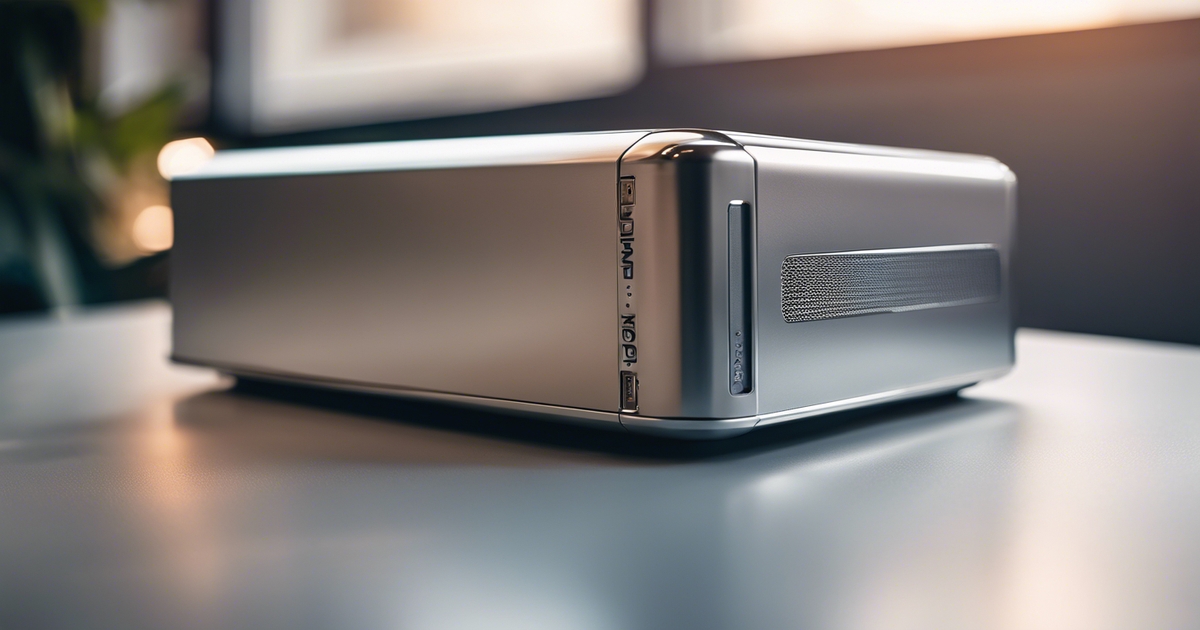
9. Cooling System
Efficient cooling is paramount in preventing overheating during extended gaming sessions. This includes air or liquid cooling solutions for both the CPU and GPU to maintain optimal temperatures under heavy loads.
10. Operating System (OS)
Install an operating system like Windows, Linux, or macOS to run your games and other software.
11. Keyboard and Mouse
Gaming peripherals designed for responsiveness and durability can improve your gaming performance.

12. Headsets or Speakers
A good pair of headphones or speakers can enhance the gaming experience. Some gamers also invest in a dedicated sound card for better audio quality.

13. Stable Internet Connection
A stable and fast internet connection is crucial for online gaming. Consider using a wired Ethernet connection for the best performance, but Wi-Fi is also an option.
Where to Buy PC Games
Best Buy
Best Buy is a popular destination for purchasing PC games and gaming computers. With its wide range of products and knowledgeable staff, it’s an attractive option for both novice and experienced gamers.
Online Stores
Many PC gamers prefer to shop for gaming desktops and blockbuster games from online retailers. Websites like Steam, Epic Games Store, and GOG.com offer a vast selection of PC games, often at competitive prices with the convenience of instant downloads.
Top 5 Most Popular Games on PC
These are (arguably) the top 5 most popular games on PC.
1. League of Legends (LoL)
League of Legends, commonly known as LoL, is a multiplayer online battle arena (MOBA) game that has maintained its popularity for years. With a large and dedicated player base, it continues to captivate many PC gamers. The strategic gameplay and the ever-evolving competitive landscape have solidified its position as a top choice for those seeking intense battles and teamwork dynamics.
2. Counter-Strike Global Offensive (CSGO)
Counter-Strike: Global Offensive, abbreviated as CSGO, remains a staple in the esports community. Renowned for its intense first-person shooter experience, this game attracts many gamers who appreciate competitive gameplay and strategic team dynamics. Its enduring popularity among PC gamers showcases the allure of skill-based combat and tactical cooperation within the gaming community.
3. Minecraft
Minecraft stands out as a sandbox game that allows players to build and explore virtual worlds made up of blocks. Its creative and open-ended nature has led to enduring popularity among both casual and dedicated PC gamers alike. The freedom to create, explore, and collaborate within an expansive virtual environment continues to attract many gamers seeking limitless possibilities in their gaming experiences.
4. Fortnite
Fortnite‘s rise to fame can be attributed to its unique blend of battle royale gameplay coupled with innovative building mechanics. This colorful and dynamic game has garnered massive popularity among PC gamers due to its frequent updates that keep the gameplay fresh. The engaging visual style combined with strategic elements has made Fortnite a go-to choice for many players looking for fast-paced action within an ever-changing virtual battleground.
5. World of Warcraft (WoW)
World of Warcraft, often referred to as WoW, holds a dominant position in the massively multiplayer online role-playing game (MMORPG) genre. With a dedicated player base spanning several years, this immersive world continues to captivate many PC gamers seeking epic adventures and camaraderie within an expansive virtual realm. Frequent expansions further enrich the gaming experience, ensuring that WoW maintains its status as one of the most influential titles in the MMORPG domain.
Conclusion
So, there you have it – the world of PC gaming unveiled! Whether you’re a seasoned gamer or just starting, understanding the ins and outs of PC gaming can make a world of difference. From the evolution of hardware to choosing the perfect gaming setup, we’ve covered it all. Now, armed with this knowledge, you’re ready to dive into the immersive world of PC gaming and take your gaming experience to the next level.
Ready to embark on your PC gaming journey? Get out there and explore the endless possibilities that await you in the realm of PC gaming. It’s time to unleash your inner gamer and experience the thrill of high-performance gaming at your fingertips!
Frequently Asked Questions
Is PC gaming expensive?
PC gaming can be as affordable or as extravagant as you make it. You can start with a budget-friendly setup and gradually upgrade your components over time, making it more cost-effective than buying a new console every few years.
What are the minimum system requirements for a specific game?
Minimum system requirements vary from game to game. You can usually find this information on the game’s official website or on digital distribution platforms like Steam. It typically includes details about the required processor, memory, graphics card, and storage space.
How can I improve gaming performance on my PC?
You can enhance gaming performance by upgrading your graphics card, increasing RAM, optimizing in-game settings, and keeping your drivers updated. Overclocking your CPU or GPU could also provide a performance boost if done cautiously.
Do I need a gaming monitor for PC gaming?
While a regular monitor works fine for most games, a dedicated gaming monitor offers features like higher refresh rates and adaptive sync technologies that can enhance your gaming experience. It’s not essential but can definitely elevate your gameplay.
What is overclocking, and is it safe for gaming?
Overclocking involves pushing your hardware beyond its factory-set limits to achieve better performance. While it can boost gaming performance, it also generates more heat and may reduce the lifespan of components if not done carefully.
